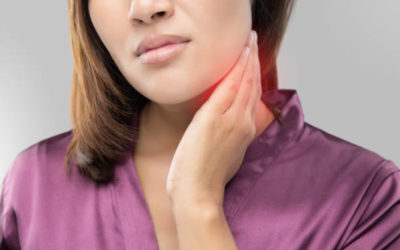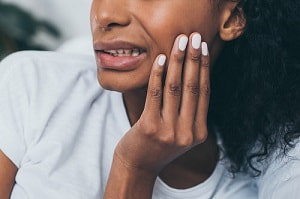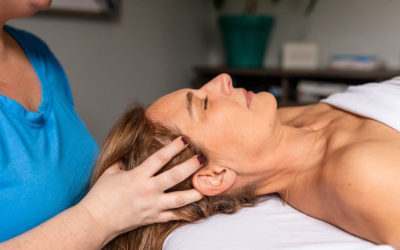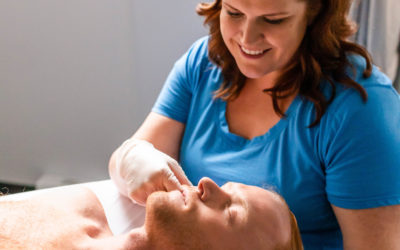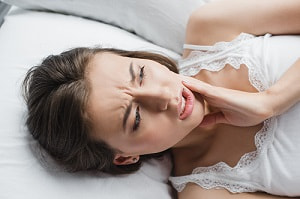Managing TMJ Jaw pain: What are the dos and don’ts?
The temporomandibular joint (TMJ) connects the lower jaw to the skull on either side of your face. It allows your jaw to open and close, allowing you to perform tasks like talking and chewing. Because you use this joint so frequently, it is prone to disorders that cause pain and discomfort.
In this country, temporomandibular joint disorders are common. The disease is difficult to diagnose because it has several possible causes and varying symptoms. TMJ disorders are characterized by the following symptoms:
-
Jaw pain
-
Muscle stiffness
-
Neck pain
-
Headaches
-
Limited movement
-
Lock jaw
Seeing your doctor whenever you have such symptoms will help you get a proper diagnosis and the best treatment for your condition.
Your doctor will examine your jaw using techniques and imaging technology to detect problems in your joint or the soft tissues surrounding it.
Additional Resource:
Learn more about TMJ: What is TMJ?
What Are the Causes of TMJ Disorders?
Temporomandibular joint disorders can be caused by a variety of factors, including jaw injuries and medical conditions such as arthritis or infections. They appear when something goes wrong with your jaw muscles or joints as a result of harmful strenuous habits.
Although no one can pinpoint the exact cause of TMJ pain, certain risk factors are frequently linked to its contraction. Prolonged stress, poor posture, joint mobility, and female hormones are among them. TMJ disorders are more common in women than in men, and experts believe the estrogen hormone plays a role in their development.
How Are Temporomandibular Disorders Treated?
TMJ symptoms usually improve or disappear on their own after a few weeks of self-care and home remedies to address the underlying cause. Although TMJ is not fatal, failing to seek treatment will result in persistent muscle tension and discomfort around your affected joint.
You may experience symptoms such as inflammation and chronic pain, which can have a long-term impact on your quality of life. A medical expert will assist you in selecting the best treatment option for your TMJ disorder from the numerous options available. They advise beginning with home treatments and progressing to more aggressive options such as surgery if symptoms persist.
Some of the treatment options that are recommended when self-care fails include:
1. Medication is in the form of antidepressants, muscle relaxants, and nonsteroidal anti-inflammatory drugs (NSAIDs).
2. Physical therapy through heating, cooling, acupuncture, and jaw exercises.
3. Surgery and other procedures, including arthroscopic surgery, open joint surgery, neck surgery, and injections.
Exercising your jaw joints and muscles can help you relax and improve your mobility. Our Richmond medical massage therapist offers a step-by-step therapy procedure that effectively relieves TMJ pain.
Dos and Don’ts of Managing TMJ Pain
Although non-surgical TMJ pain relief is possible, certain behavioral factors can aggravate your condition and cause severe pain.
Do Eat Soft Foods
Chewing puts strain on your joints and aggravates jaw pain. Soft foods that are easy to chew include yogurt, mashed potatoes, milkshakes, soups, smoothies, and scrambled eggs.
Don’t Eat Hard Foods
Raw carrots, nuts, whole apples, and chips can aggravate your pain symptoms and make them last for weeks. Avoiding chewing gum and other chewy foods will help you recover by reducing the strain on your jaw joint.
Do Practice Relaxation Techniques
Relaxation techniques such as meditation and yoga can reduce stress on your jaw muscles, helping you relieve pain.
Don’t Practice Bad Habits
Yawning, yelling, chewing your lips, and resting your jaw in your hand can all cause or worsen jaw pain. Holding your phone between your shoulder and ear forces your joint into an abnormal position, which can also cause joint stress.
Note how often you practice such habits and find ways to avoid them.
Do Use Ice And Heat
Cold packs applied to the affected joint for 10 to 20 minutes will reduce swelling and pain. Wrap your ice pack in a clean towel or cloth to keep it from touching your skin. Applying moist heat to tense muscles will relax them and increase blood flow to your joints.
Do Maintain Good Posture
Maintain good posture throughout the day and even while sleeping, making sure it is good enough for your jaw. Maintain a neutral posture with your head, without slouching or craning forward, especially when working on a computer monitor. When sitting, always support your lower back, and sleep with a pillow for your neck.
Certain behavioral habits that you should avoid to improve your symptoms include:
Sleeping On Your Stomach
To relieve pressure on your jaw joint, avoid sleeping on your stomach. The sleeping position would require you to turn your head to one side and hold it there for the duration of the night, putting pressure on your facial muscles. When sleeping on your side, you should also avoid placing your hand under your jaw.
Biting Or Chewing Hard Objects
Chewing on objects like your fingernails, pens, pencils, or ice puts undue strain on your jaw joint and surrounding muscles. Taking large bites forces you to thrust your jaw forward, causing excruciating pain.
Teeth Grinding and Clenching
Grinding your teeth and clenching your jaw are common habits that aggravate your joints. Keep your teeth slightly apart and your jaw in a good position to reduce pain.
Looking for Comprehensive Massage Therapy in Richmond, VA? Contact Us Today!
TMJ disorders can be debilitating, and you may require a therapeutic approach to treatment, such as a TMJ massage. A TMJ massage will help you recover from your condition by preventing headaches, relieving pain in your upper or lower teeth, and reducing stress.
Jana Powell is a licensed massage therapist and a certified medical massage practitioner who offers TMJ patients personalized therapy care. Her one-of-a-kind, customized massage therapy sessions will assist you in managing your symptoms and achieving your goals. Make an appointment by calling (804) 901-2952.
Featured on Virginia This Morning:
Jana Powell recently sat down with Jessica Noll from Virginia This Morning to talk about TMD.
Additional Resources:
Why November Is the Best Time to Relieve TMJ Pain at Attune Massage Therapy in Richmond, VA
Why November Is the Best Time to Relieve TMJ Pain at Attune Massage Therapy in Richmond, VAAs the crisp November air settles over Richmond, many...
5 Signs You May Need a TMJ Massage (And What to Do About It)
5 Signs You May Need a TMJ Massage (And What to Do About It)Do you wake up with a sore jaw or experience frequent headaches? You might be dealing...
TMJ Disorder: What It Is and How Massage Therapy Can Help
TMJ Disorder: What It Is and How Massage Therapy Can HelpDo you suffer from jaw pain, clicking sounds, or tension headaches? You may have TMJ...
Can I go to the ER with TMJ?
can i go to the er with tmj? TMJ disorder affects the TMJ (temporomandibular joint) and the muscles that surround it. The TMJ is located on both...
Can TMJ Cause Neck Pain?
Can TMJ Cause Neck Pain?Temporomandibular joint (TMJ) is one of the most prevalent reasons for jaw discomfort, popping sounds, and crepitus, all of...
Can TMJ Cause Swollen Lymph Nodes?
Can TMJ Cause Swollen Lymph Nodes? Remember how you used to tell your mother as a child that you didn't feel well and that you thought you were...
What Causes Head and Ear Pain on One Side?
What Causes Head and Ear Pain on One Side?Earaches and headaches are common and can happen on both sides. They often come with other symptoms such...
Best Treatment for TMJ in Richmond, VA
Best Treatment for TMJ in Richmond, VAMillions of Americans all over the country, including Richmond, VA, are suffering from jaw pain and other...
Best Ways to Sleep With TMJ
Best Ways to Sleep When You Suffer from TMJWe all open and close our mouths many times throughout the day because of talking, eating, chewing, and...
How to Treat Jaw Pain and Swollen Lymph Nodes
How Do You Treat Jaw Pain and Swollen Lymph Nodes?Let's Talk About Jaw Pain and Swollen Lymph Nodes. There are many factors to think about when we...
What Are Some Ways to Get Rid of TMJ?
What are some ways to get rid of TMJ?How to get rid of TMJ symptoms and pain. Clients often ask, “How can I get rid of TMJ completely?” The answer...
How to Cure TMJ Naturally
Is there any way to cure TMJ naturally? Yes, there is a way to cure TMJ disorders naturally, without a doctor or dentist. In fact, TMJ symptoms have...
Subscribe and get $10 OFF your next massage!
Enter your name and email address to get updates, information, and other exclusive deals ONLY offered to subscribers!


